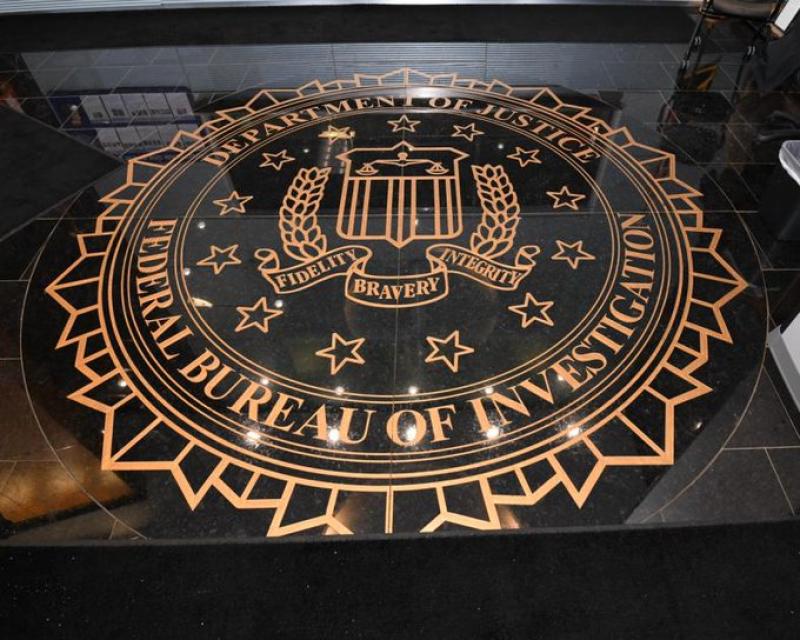What Mike Pence Gets Wrong about the FBI
By: ANDREW C. MCCARTHY



S o . . . does Mike Pence think Mike Horowitz should stop criticizing the FBI?
Does the former vice president believe the lives of those he this week called the “ brave men and women who stand on the thin blue line ” at the bureau have been put at risk by the hundreds of pages of reports (see, e.g., here , here , here , here , here , here , here , here , here , and here ) in which Horowitz, the Justice Department’s own inspector general, has scalded the bureau for serial abuses of its national-security surveillance powers, shocking political bias, lying under oath to investigators, leaking investigative information, usurping the authority of federal prosecutors, petty corruption, and so on?
Or perhaps Pence thinks that it is the federal judges of the Foreign Intelligence Surveillance Court (FISC) who have imperiled the lives of FBI agents? In late 2016, the judges lambasted the bureau for its institutional “lack of candor.” They weren’t referring to the FBI’s misconduct in connection with that year’s election — that rebuke would come later. Instead, they were exasperated by the bureau’s years of systematically flouting restrictions on its surveillance authority and misrepresenting the scope of that illegality to the court — with the result that millions of innocent Americans were swept into its national-security monitoring.
When the FISC issued that rebuke, the FBI was just getting started with its FISA abuses in connection with the 2016 election — the investigation in which top agents vowed to stop the Republican candidate from being elected and, failing that, to secure “an insurance policy” by snooping on his presidency. Later, after yet another humiliating internal investigation by the Justice Department, the chief FISA judge condemned the FBI’s systematic failure to honor the court’s rules and the agency’s own internal guardrails.
This malfeasance — not misfeasance, mal feasance — resulted in the presentation to the court of utterly unreliable information. It is not enough to say this misinformation, to which FBI agents swore in FISA-surveillance applications, was unverified despite the requirement of verification in presentations to the FISC. In some instances the bureau agents didn’t even try to corroborate their representations to the judges. And in some instances in which they claimed to have tried, they failed to maintain the supposedly supporting evidence, despite the mandates of their own regulations.
Mind you, these examples of condemnation, not by alarmed Republicans but by United States judges, all arose in connection with the bureau’s foreign-counterintelligence mission. That is the domestic national-security mission, in which the FBI is trusted to wield awesome powers under the cloak of secrecy — not just outside public view but also beyond effective judicial and congressional oversight. It is the mission in which the only due process an American citizen gets hinges on the FBI’s adhering to the rules and playing it straight with the courts. It is the mission that asks the American people to believe the bureau when it looks them in the eye and says, “You can trust us.”
But can we? When a court that relies on an agency’s integrity assesses that, institutionally, it lacks candor , that doesn’t mean it screwed up a few times, as we all do. That doesn’t relate to errors which we would expect well-meaning people to make in high-pressure jobs where tough decisions frequently have to be made based on imperfect knowledge. No, that is warning of rot from within — a judgment about institutional character rather than institutional competence.
Do you know what is the most notorious criminal trial taking place in our country today? It is a retrial in the case against two defendants accused of plotting to kidnap Michigan’s Democratic governor, Gretchen Whitmer. It is a retrial of those two defendants because the last time around , a jury could not convict them and outright acquitted two others.
That tends to happen when a jury smells a rat — when it perceives that the FBI may have been fabricating rather than investigating a crime, may have been leading a group of ne’er-do-wells by the nose in order to fuel a progressive narrative of a nation under siege by racist Republican militiamen. Maybe it was the fact that the defendants under indictment seem as if they couldn’t kidnap a ham sandwich — although a federal grand jury could obviously indict one. Maybe it was that the FBI had more informants in the case than there were suspects complicit in the purported plot. Maybe it was that one of the agents on the case leaked information while the probe was ongoing, apparently to promote a cyber-intelligence venture he had going on the side. Or maybe it was because of the main case agent: the one who was posting on social media about Trump’s being a “douchebag fu**ing reality tv star”; the one who was later arrested for beating his wife to within an inch of her life after they argued because she didn’t like the “swingers” party he had just taken her to.
We’re not talking Efrem Zimbalist Jr. here.
The FBI began its life as the embodiment of its founder, J. Edgar Hoover, one of the most loathsome figures in modern American history — yet one after whom, to this day, the bureau’s headquarters is named, even in this age when iconoclastic progressives have canceled George Washington, Teddy Roosevelt, Christopher Columbus, and many others (while continuing to buy up Che Guevara T-shirts, of course). Hoover’s stewardship led seamlessly to the spy scandals that prevented domestic terrorists from being held accountable in the seventies and eighties. In the years after that, many of us rule-of-law enthusiasts learned to love the FBI warts and all, because we were privileged to work with agents who personified decency and fair play — honorable, patriotic law-enforcement lifers who took the Constitution to be a compass, rather than an obstacle, and worked to live up to the awesome responsibility of the job. But the institution’s original sin was never expiated.
In fact, as the era of anti-American jihadist terrorism dawned in the 1990s, things gradually became worse, because the bureau’s ethos changed.
What the FBI has historically done well is police work, particularly investigations of interstate crime syndicates that are difficult for municipal police departments to combat. Despite its well-documented COINTELPRO abuses, the bureau has remained the nation’s domestic-security service, performing counterterrorism and foreign counterintelligence duties. But this mission did not figure as heavily in the bureau’s work before the jihadist onslaught. From the seventies into the nineties, the best agents wanted to be doing criminal investigations, and with crime surging, that’s exactly what the Justice Department wanted them doing.
Then, foreign terrorism changed the bureau’s self-image. It was as if the FBI had become an international-intelligence agency with a domestic-policing sideline. During the Clinton administration, the bureau beefed up its overseas presence and substantially supplanted the CIA as the government’s liaison for security matters. Those matters were increasingly seen as law-enforcement issues, but that perception had the unintended consequence of transforming law-enforcement into something more like intelligence. The goal was admirable: prevent mass-murder attacks rather than look for terrorists to prosecute for scores of murders after the fact. Intelligence work, however, is different from police work not just in degree but in kind. It resists transparency and due process — the fundamentals of policing in a constitutional republic whose highest value is liberty.
The bureau now prioritizes secrecy. Secrecy is the sine qua non of effective intelligence work, and to be sure, there is a limited place for it in law enforcement, particularly while investigations are ongoing. Lots of information must be kept under wraps to protect not only informants but the reputations of investigative subjects who are presumed innocent. That is why, by law, grand-jury proceedings are secret. But transparency and due process are still much higher law-enforcement priorities.
As someone who criticizes the FBI out of reverence for the institution and what it should be, I no longer believe the bureau can get its priorities straight. We have to be honest: Things are headed in the wrong direction. Over the last decade, as it took on the cast of a spy agency, the bureau returned to its Hooverian roots, becoming enmeshed in politics and serving a partisan agenda — inevitably that of the Democratic Party because Democrats are the party of government and the bureau knows where its bread is buttered. There is a reason the FBI, taking cues from its political masters, now translates the term domestic terrorism to mean the right-wing extremism of white supremacists , even as left-wing radicals and the criminals they coddle destroy America’s cities.
Funny, but I don’t recall Vice President Pence’s being a ferocious defender of the FBI while his boss, to whom he was the very model of obsequiousness, spent four years attacking it. If he gave a “Now, now, Mr. President, let’s not throw out the thin-blue-line baby with the Hoover Headquarters bathwater,” I’m afraid I missed it. But if he really thinks that negative criticism of the FBI, on the current record, is a form of dangerous incitement, then he has no business running for president.
I’ve never been a big Pence fan, glad as I am that he showed backbone in resisting a hare-brained election-theft scheme that he had to know had no chance of success. I genuinely admire the unflinching courage he exhibited during the Capitol riot, but politically he has always seemed more opportunistic than courageous to me. He is, in any event, a wonky good-governance type, so I’d have thought he’d be familiar with the criticisms of the FBI raised by the Justice Department and the federal courts, which address a depth of malfeasance well beyond a few bad apples in the front office.
And does he actually believe that saying “Defund the FBI” is the same as saying “Defund the Police”? The FBI is not a safe-streets police force. It is mainly designed to counter sophisticated criminal syndicates that operate across state or national borders; its best work is deliberate and analytical, not instant and reactive policing. Defunding the police destroys communities; no one calls the FBI when a store gets robbed or an old lady gets mugged — they call the police, and they complain that if police were on the beat the neighborhood would be safe. If the FBI’s budget were zeroed out (a bad idea, to be clear) while municipal police forces were fully funded and encouraged to enforce the laws (a good idea), crime would be reduced dramatically.
The FBI can still be a valuable force for good, but not if we close our eyes and swallow our tongues regarding its problems. I believe it must be converted strictly into a federal law-enforcement agency, one that sticks to investigating serious crime and assisting the Justice Department in prosecuting it. Though that’s a hard job, it’s one the FBI can still do well. But the bureau should get out of domestic security and foreign counterintelligence. Those missions should be transferred to an intelligence agency that has no police powers — one that has liaison with law-enforcement agencies but does not do law enforcement, one that is bound to honor the Constitution in its domestic operations and subjected to exacting oversight.
You may think that is the right way to go, or you may think I’ve misdiagnosed the problem. But you’d be hard-pressed to deny that there is a problem — and to be solved, problems have to be confronted. In a functioning free society, sensible people do not shrink from addressing serious challenges just because doing so might provoke the most irrational of their fellow citizens . In a functioning free society, violence is aggressively prosecuted, regardless of the -ism that motivates it , and the specter of violence isn’t allowed to become a shield against accountability. Mike Pence should know that.


